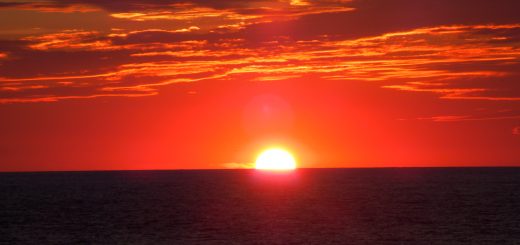Holocaust/Independence Day nexus that can perplex us

TO sit /stand/walk/be silent/ recite Psalms/ study? These are the choices you have to make if you are in Israel on Holocaust Remembrance Day which the government in 1951 established the week after Pesach, with all the problematics involved. On Holocaust Day I found myself on the train to Beer Sheva at 10 am when the sirens are sounded all over Israel calling for 2 minutes of standing silence. Since no sirens are sounded in the middle of the Negev desert, I wondered what would happen. At 9:55 the conductor announced that the train soon would come to a halt for several minutes of silence, and so it was. Standing, I recited Tehillim and peered over my Psalter to see what the young Beduins in my car were doing, and indeed they too stood, respectfully silent.
Once in Beer Sheva I went to hear writer Rabbi Haim Sabato, who was invited to speak at Ben-Gurion University on his latest historic novel, just out in English as From the Four Winds. The hero is a Holocaust survivor, Moshe Farkash, whose real-life diary was the basis for From the Four Winds. R. Sabato spoke about himself in 1956 as a six-year-old immigrant from Egypt, his encounter with Holocaust survivors, his wondering about the mystery behind their frozen facades, and the secrets behind Farkash’s frenetic activities. The book is ideal for book clubs, history classes, or for summer reading.
The moderator at the event, Dr. Zvi Zameret, posed the often-asked question about emunah: How do Jews continue to believe after the Shoah? R. Sabato replied by reading a passage from a not-yet-published story of his:
In our immigrant neighborhood in Jerusalem Uncle Jacko taught an after-school class for us children on Prophets & Rashi in the community center. We received monthly prizes: notebooks and colored pencils. Uncle Jacko came after his work day at the post office, with two overflowing baskets on his way home from the shuk. Before he went home he taught the neighborhood children this class in Neviim. We were studying Isaiah, chapter 45. Each child read a verse. Ben-Shushan read verse 15: “Indeed, You are a God Who conceals Himself, E-L Mistater; the God of Israel, the Savior.” I was the youngest in the class. Uncle Jacko asked me to read the Rashi commentary. I read, “A God Who conceals. E-L Mistater. So to speak, kivyochol, You have not the ability…to save.”
Uncle Jacko saw my astonishment and repeated with emphasis: Kivyochol, So to speak Kivyochol ein b’cha ycholet….
R. Sabato continued his reply to the question of faith with the story which revolved about the concept of E-L Mistater, Divine concealment.
A completely different answer was given by Rav Sabato on another occasion when he was asked: How can a Jew believe after the Shoah? He answered with a counter-question: How can a Jew not believe when we see the revival of Israel and the Hebrew language?
I find this second answer problematic. Is there a connection? The title of the book would imply there is. The title, From the Four Winds, whose production in English I was involved in, is from Ezekiel’s vision of the valley of bones. It was a bestseller in Hebrew as Boi HaRuach, referring to the Jews’ ingathering from the four corners of the earth.
How true, or true-to-life, the novel is was discussed by a panel, including the daughter of Farkash, at the Hebrew launching in Jerualem’s Mishkenot Shaananim two years ago.
The children of Farkash are a link from the Holocaust to the revival taking place in Israel today. This brings us from the siren for Holocaust Day to the siren for Memorial Day for the Fallen Soldiers a week later, and then to Yom Atzmaut the next day. I will share my thoughts on that in my next posting.



>I find this second answer problematic. Is there a connection?
Yes, yes, a thousand times yes! Hashgacha is a two way street! It is not tennable to have a maximalist view of hashgacha pratit regarding everything except the revival of Israel and the Holocaust. If one attempts such a theology all one is left with is a life that mimics a kupat ha’ir advertisement. To the extent that one is troubled by God’s involvment in the Holocaust, one should also be comforted by His role in Jewish revival.
TO sit /stand/walk/be silent/ recite Psalms/ study?
If none of the above choices work for a person, they can always STAY INDOORS FOR THOSE 2 MINUTES.